Our History
The early years of St. Stephen’s began in 1872, when services were held from place to place with the help of an Episcopal church in a neighboring town. In 1898, the purchase in Westboro of a house and a stable was the beginning of its first real home, with the stable having been converted into a church.
The Diocese of Western Massachusetts was formed at the turn of the century, and in 1906 St. Stephen’s became a mission, led by a Vicar and an Executive Committee. Modest changes to the church were made throughout the years until 1954. With the rapidly growing population after World War II, it became apparent that a larger church was needed.
It was then that land was bought on John Street, our church’s current location. An architect was hired whose philosophy was, “….to create churches whose walls and roofs and spires express the aspirations of the people who congregate there.” The first services were held in 1957. Significant work continued in the early years, working on Fay Hall, the classrooms in the lower level and within the interior of the church itself.
Our church building, of a contemporary design, sits on a large parcel of land on a short side street off Main Street. It is located in a quiet residential neighborhood, made up of old homes and old, tall trees. The church’s welcoming entrance is bordered by a lawn, flowering shrubs and perennials. The very tall, vertical stained-glass window behind the free-standing altar lets in the warm sun on Sunday mornings.
With the church’s growth and becoming financially stable, in 1977 the Diocese approved of its application to become a parish with a Rector and a Vestry. There was a celebration in 1982 when the mortgage was burned! There was an even larger celebration during the Centennial Year in 1998.
Since St. Stephen’s became a Mission of the Diocese of Western Massachusetts in 1907, we have had eight Vicars, plus two assistants and one deacon. From I977, when we became a Parish, to 2020, there have been five rectors. The first rector was both a vicar and a rector during the early transition from Mission to Parish, between years of 1972 to 1978. We have also had two assistants and two deacons. Currently, the Reverend Mary Rosendale serves as our Priest-In-Charge.
Tragedy struck our Parish in 1991, when the beloved Fr. John Lawton and his wife, Nancy, were killed in a car accident, leaving behind four children—- two adults and two in high school. With the guidance and support of the Diocese and our community, we were then able to recover and call a new rector in 1992. The town of Westborough named the street Lawton’s Way after them, and under the leadership of Fr. Dennis Jarry, St. Stephen’s healed, and grew in hope, faith, spirit and fellowship!
The Episcopal Faith
As members of the Episcopal Church, we are also part of the Anglican Communion, a worldwide group of over 85 million people in 38 provinces spread across more than 165 countries.
As Episcopalians, we are followers of Jesus Christ, our Lord, and believe in one God, present as Father, Son, and Holy Spirit. We study the Bible as God’s message of transformative love and the history of God’s people.
Our Anglican heritage reminds us that faith is grounded in Scripture, illuminated by the Tradition left by Christians throughout the ages, and informed by our sense of reason and our personal experience.
We worship with the Book of Common Prayer, which is the liturgical prayer of our church. We gather as people of God to celebrate the Holy Eucharist together each Sunday, and Communion may be received by all baptized Christians, regardless of religious background or age. In addition to Communion, we continue to offer the rest of the traditional seven sacraments as means of God’s grace.
In our church, we ordain as deacons, priests, and bishops all whom God has called to ministry, regardless of race, gender, sexual orientation, or relationship status. We also believe that lay people should exercise a vital role in the governance and ministry of our church.
We affirm that committed relationships are lifelong and monogamous and may be blessed by God and the church, and we also recognize that there is grace after divorce and do not deny the sacraments to those who have been divorced.
We affirm the primacy of conscience, and trust that issues, such as family planning, are very personal decisions.
All are welcome to find a spiritual home in the Episcopal Church.


